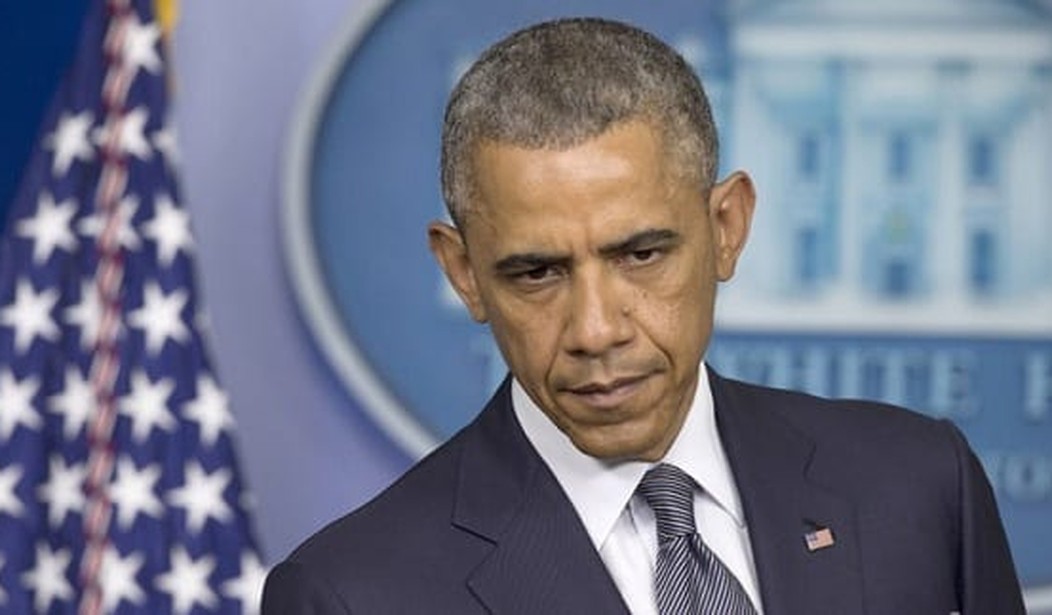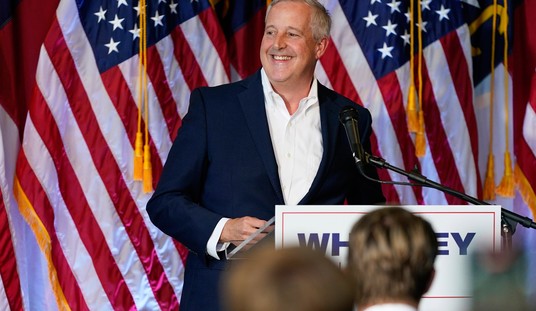 If anyone had hopes of a comprehensive response by the Obama administration to the growing challenge presented by ISIS after Obama’s remarks in Estonia today they are indeed optimists.
If anyone had hopes of a comprehensive response by the Obama administration to the growing challenge presented by ISIS after Obama’s remarks in Estonia today they are indeed optimists.
But what I’ve said from the start is, is that this is not going to be a one-week or one-month or six-month proposition. Because of what’s happened in the vacuum of Syria, as well as the battle-hardened elements of ISIS that grew out of al Qaeda in Iraq during the course of the Iraq war, it’s going to take time for us to be able to roll them back. And it is going to take time for us to be able to form the regional coalition that’s going to be required so that we can reach out to Sunni tribes in some of the areas that ISIS has occupied, and make sure that we have allies on the ground in combination with the airstrikes that we’ve already conducted.
So the bottom line is this: Our objective is clear, and that is to degrade and destroy ISIL so that it’s no longer a threat not just to Iraq but also the region and to the United States. In order for us to accomplish that, the first phase has been to make sure that we’ve got an Iraqi government that’s in place and that we are blunting the momentum that ISIL was carrying out. And the airstrikes have done that.
But now what we need to do is make sure that we’ve got the regional strategy in place that can support an ongoing effort — not just in the air but on the ground — to move that forward.
…
And to go back to what I said earlier to Ann, we know that if we are joined by the international community, we can continue to shrink ISIL’s sphere of influence, its effectiveness, its financing, its military capabilities to the point where it is a manageable problem. And the question is going to be making sure we’ve got the right strategy, but also making sure that we’ve got the international will to do it. This is something that is a continuation of a problem we’ve seen certainly since 9/11, but before. And it continues to metastasize in different ways.
What Obama has done here is create confusion about what we will do and set as a precondition for action a series of events that are unlikely to happen. If this sounds familiar, consider how Obama went about removing US troops from Iraq.
For beginners, “degrade and destroy” are not the same thing… degrade being a subset of destroy… and they are tactical, not strategic, terms of reference. That he uses these terms is perhaps not an accident, “destroyed” is accomplished when 30% of the enemy force is put out of action.
What constitutes accomplishing this task until ISIS ceases to be a threat to Iraq is markedly different from ensuring they aren’t a threat to the region or the United States. To remove the threat to Iraq would clearly imply a sustained and sizeable US military presence in Iraq. No one seriously thinks Obama is contemplating this.
He further muddies the waters by changing the goal from “degrade and destroy” to “to shrink ISIL’s sphere of influence, its effectiveness, its financing, its military capabilities to the point where it is a manageable problem.” This begs the question, of course, manageable for whom? For Iraqi Christians and Yazidis? For the Kurds? For Sunni Iraqis? For us? For James Foley and Steven Sotloff?
The key sign that no decisive action is being contemplated is that future actions are predicated on a regional coaltion. There is no possible regional coalition that can be put together which the United States can join. The possible players are Iran, Iraq, Turkey and Syria. And a coalition requires a unified command structure. Is there a set of facts out there that would enable Obama to join in a military coalition with Iran and Syria? Turkey has effectively allied itself with ISIS in its efforts to overthrow Syria’s Assad. Even the Iraqi militias involved are questionable:
While helping Iraqi forces to break the Islamic State’s siege of Amerli, the US Air Force supported a deadly Shia militia that is responsible for killing hundreds of US soldiers. The Shia militia, known as Asaib al Haq, or the League of the Righteous, has also captured and executed US soldiers and British citizens in the past.
What this strategic paralysis points to is the limit of military power as an instrument of policy. Military power has four essential purposes: to assure allies, to deter opponents, to coerce our opponents into abandoning courses of action that are hostile to our national objectives, and, finally, to compel our opponents to do what we wish. In the case of ISIS, military power has failed to achieve the first three functions and so now we are searching for a way to compel ISIS to bend to our will.
But, as Clausewitz famously observed, war is a continuation of political intercourse by other means. War is a political act and absent an achievable political objective using military force rates right up there with a three-year-old’s bedtime tantrum as an effective tool.
So long as the administration cannot articulate a political endgame in regards to ISIS that meets the security objectives of Iraq, and to a lesser extent Syria and Iran, we are limited to the equivalent one-dimensional gunboat diplomacy.
However, to develop a political strategy for dealing with ISIS will require a level of maturity and competence that we’ve yet to see in this administration.
This leaves us with the inevitable conclusion that the administration’s actions against ISIS is little more than window dressing designed to get him through the current crisis of his own making.













Join the conversation as a VIP Member